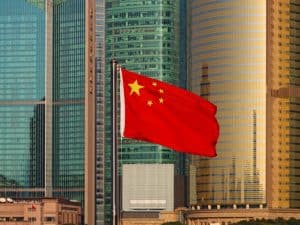 A survey of 300 institutional investors has found that of the 100 respondents based in Greater China, 63% plan to increase their ETF allocation within their portfolios over the next 12 months.
A survey of 300 institutional investors has found that of the 100 respondents based in Greater China, 63% plan to increase their ETF allocation within their portfolios over the next 12 months.
The research, conducted by Brown Brothers Harriman (BBH), showed that a greater number of Mainland China investors have warmed to investing in ETFS. Over 60% of respondents in Mainland China have at least a quarter of their total assets under management (AuM) in ETFs, and 77% plan to increase their ETF allocations.
In the context of the global exchange traded fund (ETF) market, Greater China represents a small proportion, accounting for only 2.1% of the $5.1 trillion industry. However, international investors are beginning to pay attention to the region – comprising of Mainland China, Hong Kong and Taiwan – which promises rapid growth even though adoption of ETFs is still significantly behind the rest of the world.
“These findings highlight the unique investor preferences and differing stages of ETF use across Greater China. ETFs are becoming an increasingly important component of institutional investors’ portfolios across the region,” says Chris Pigott, senior vice president, BBH Hong Kong.
“Looking forward, regulatory development and enhanced ETF market infrastructure are areas of focus that will provide the foundation to support the expected growth.”
The catalyst
Behind this push is the MSCI’s inclusion of China A-shares at the beginning of last year, followed by the Bloomberg Barclays inclusion of Mainland bonds to its benchmark index in April.
In March, MSCI announced it would quadruple the weighting of A shares on its Emerging Markets index from 5% to 20%, which is expected to attract international fund flows of $80 billion.
As a result of these developments, 70% of European and US respondents of the BBH survey plan to invest in the China capital markets this year via ETFs or through the Mainland-Hong Kong Connect programmes.
Of these respondents, half said they would invest in an ETF, while others stated they will buy stocks or bonds via the Connect or the two qualified foreign institutional investors (QFII) programmes.
As well as these capital markets developments, ongoing education efforts around the structural benefits of ETFs are resonating with investors in the region. Mutual funds in the region have increased their awareness of smart-beta ETFs, as nearly all of them within the survey said they have at least one smart beat ETF in their portfolio, and 38% purchased a smart beta ETF to replace an actively-managed mutual fund.
The report outlined how regulatory developments will continue to be the catalyst for further investor adoption of ETFs. “In Mainland China, the regulatory landscape is evolving with a clear focus on deleveraging and strengthening the asset management industry. The development of the third-pillar pension scheme is a key factor to watch, as ETFs and other passive products may become important building blocks for target date funds,” the report stated.